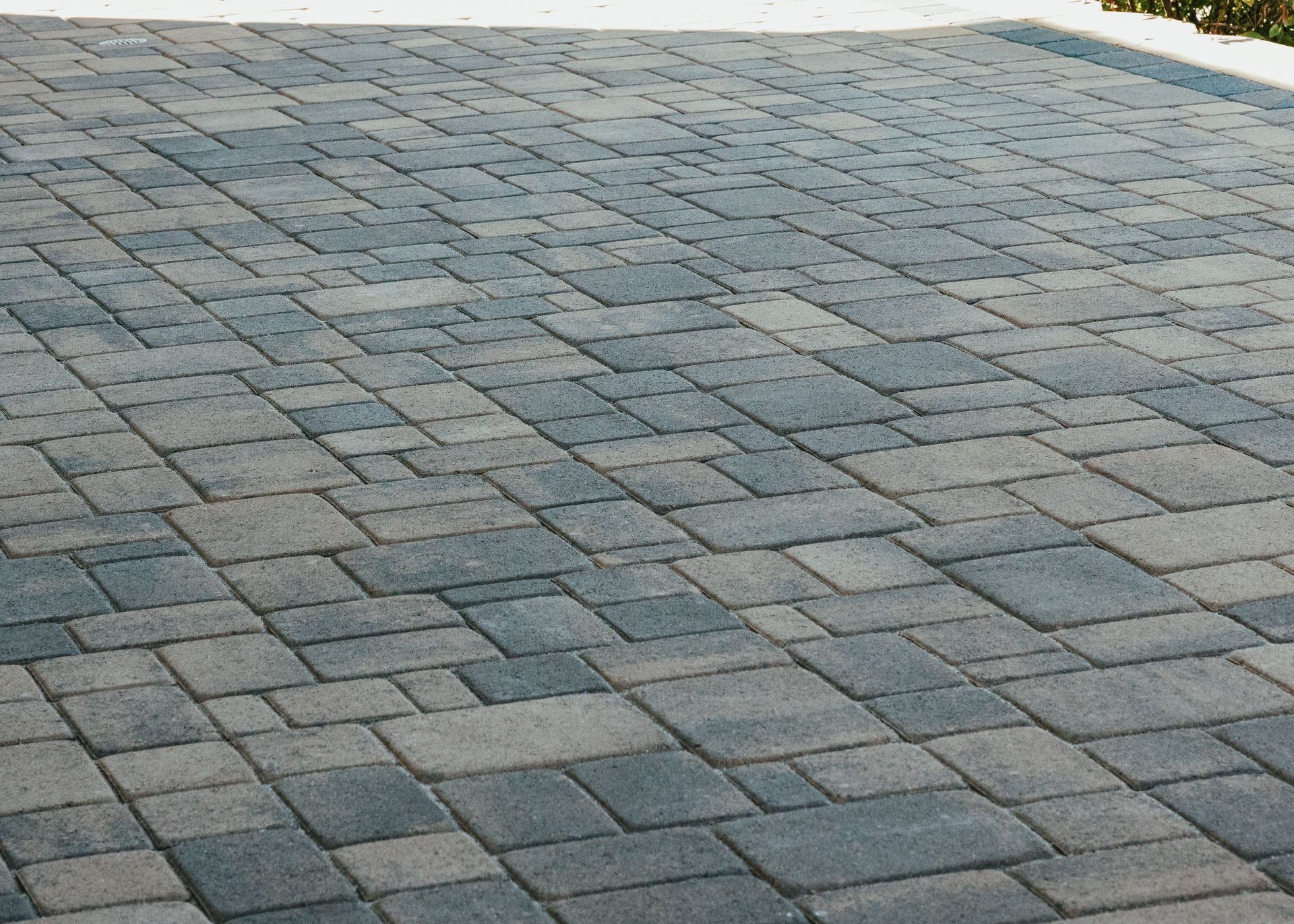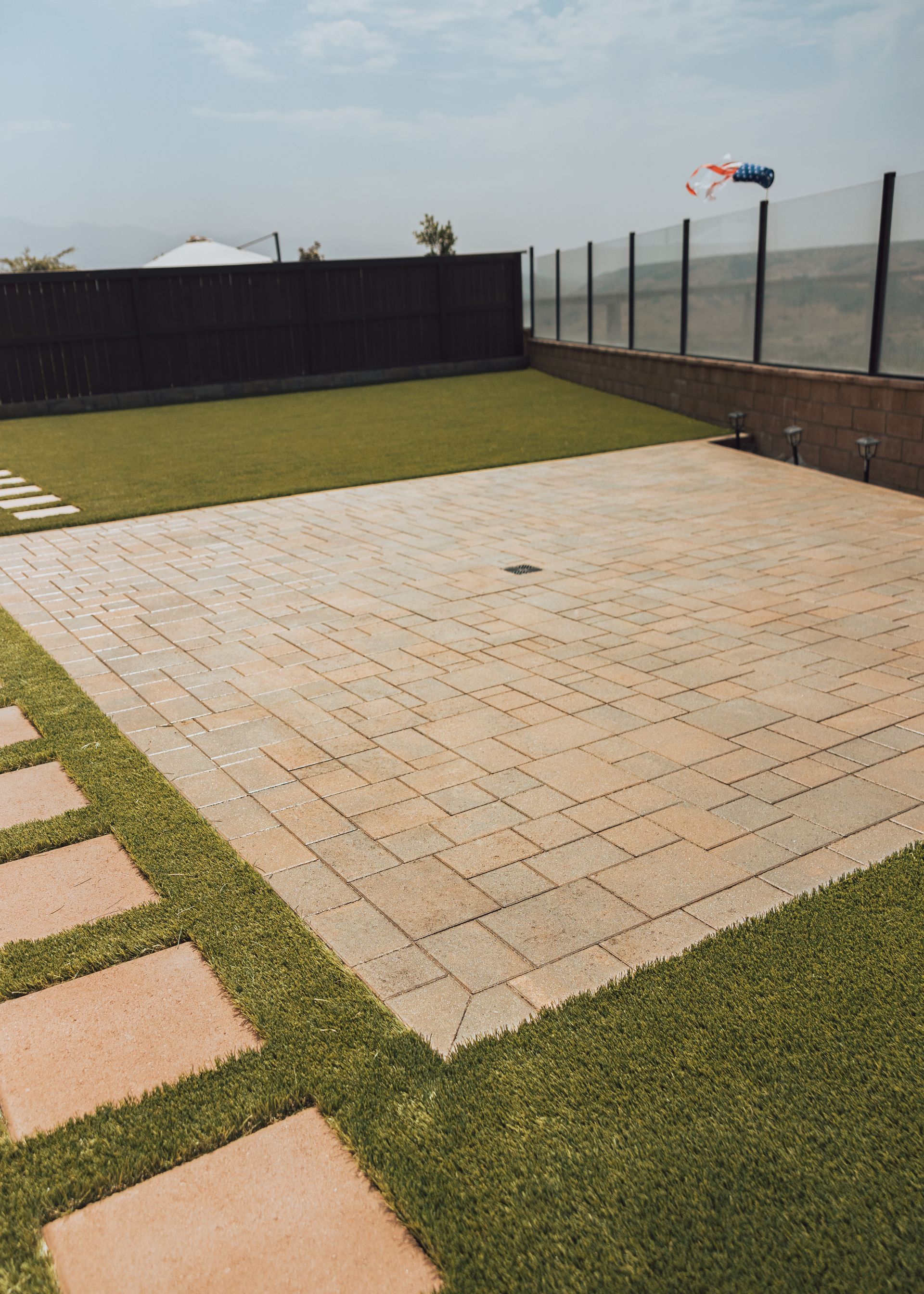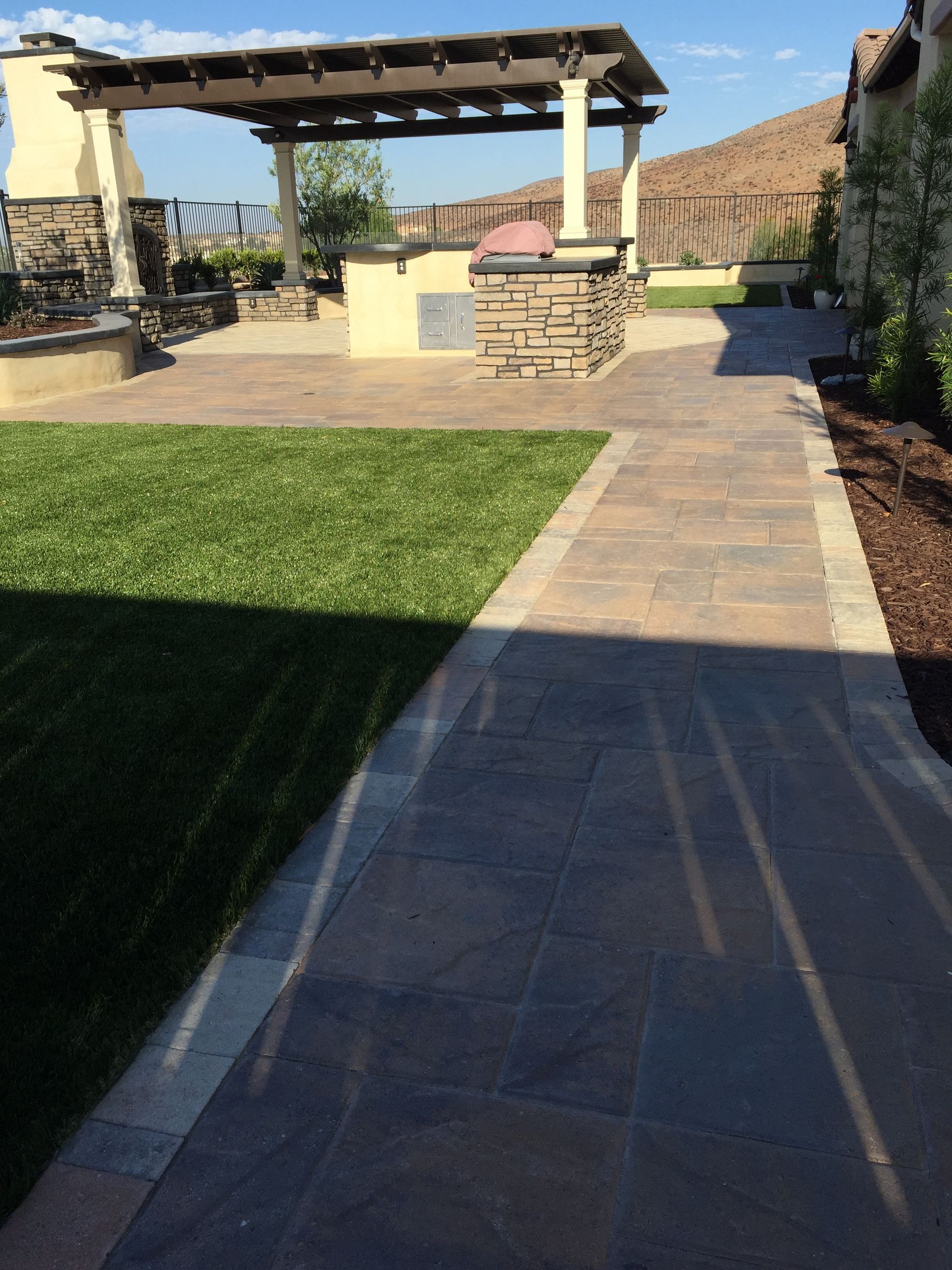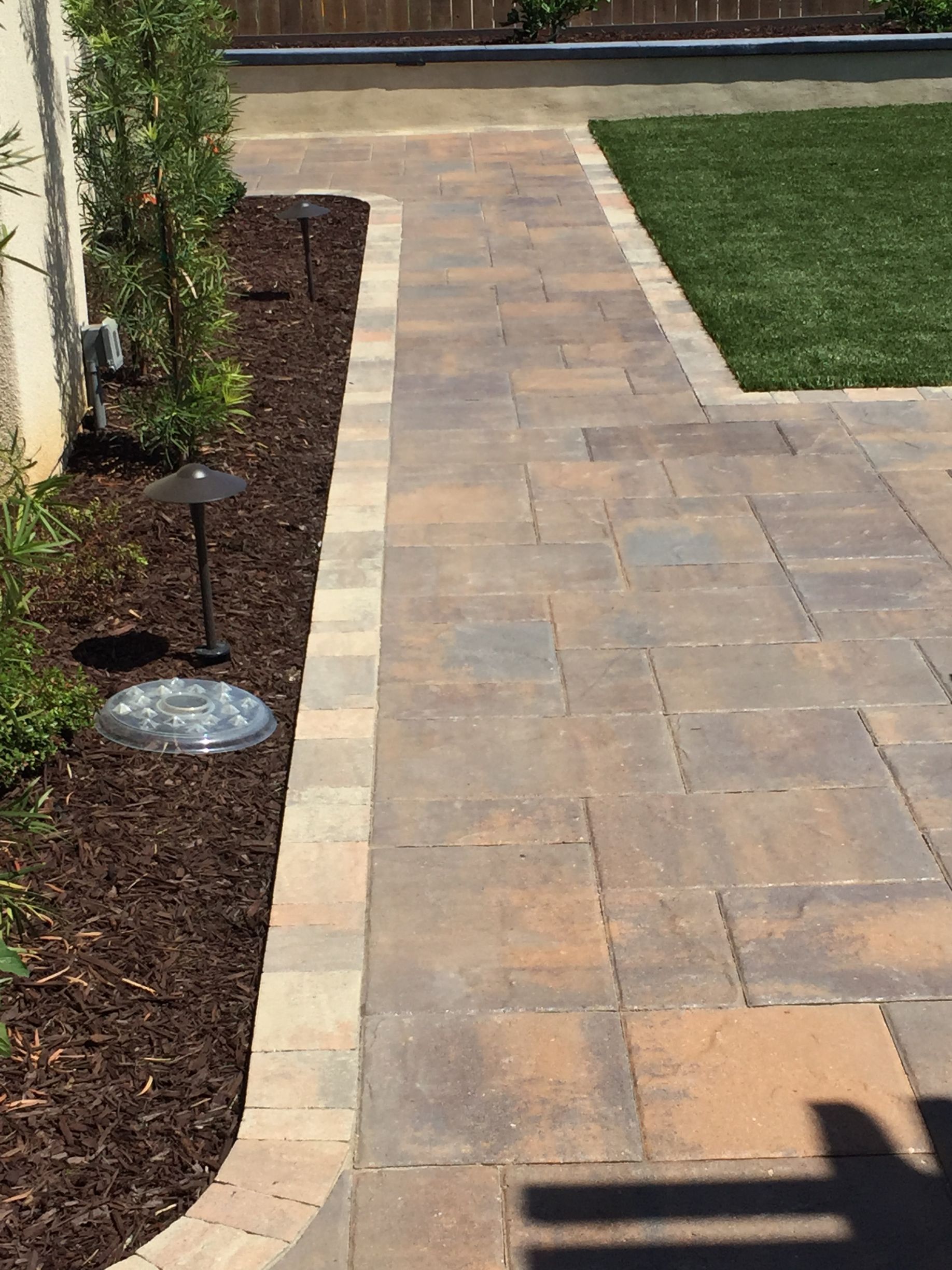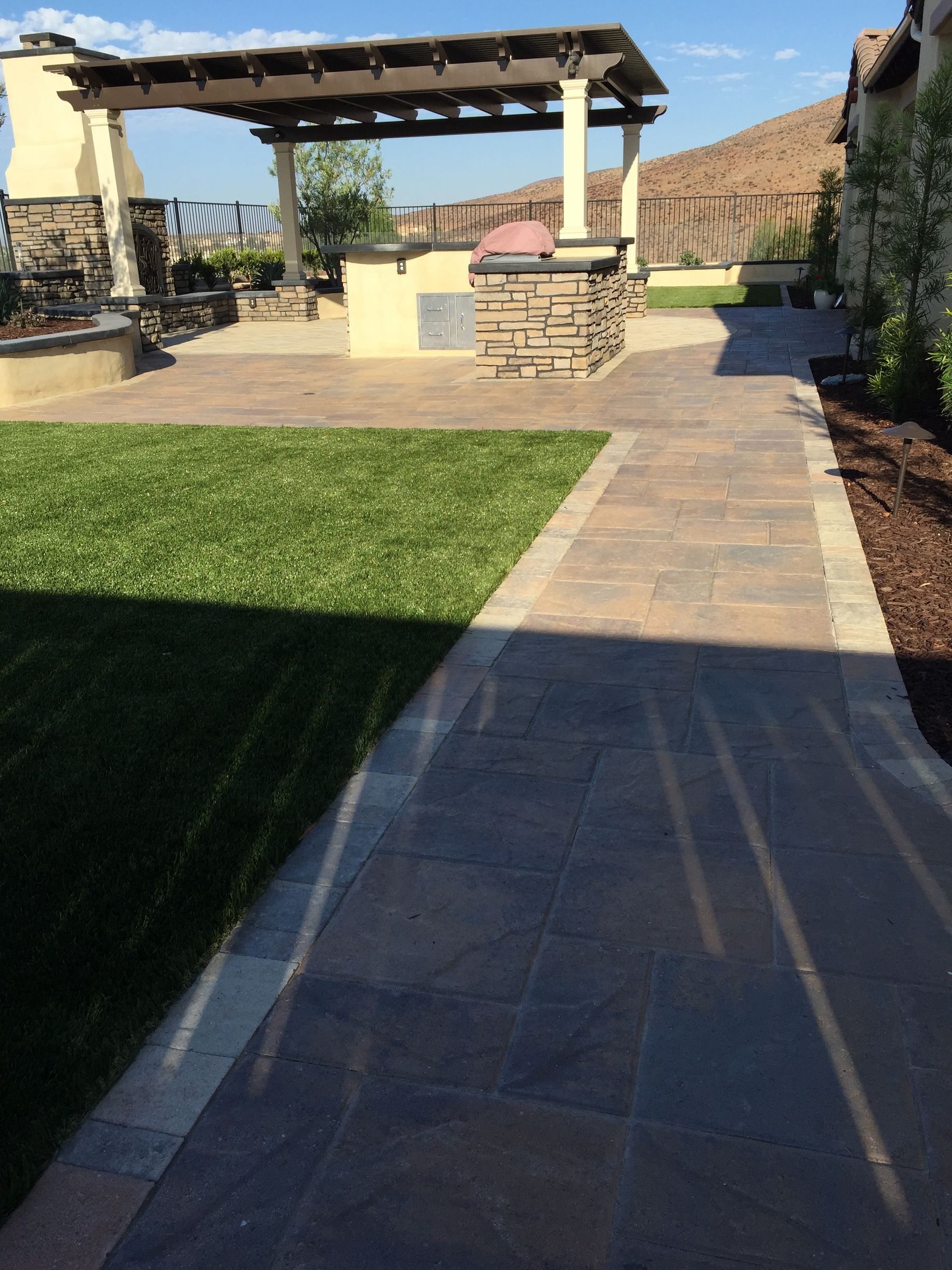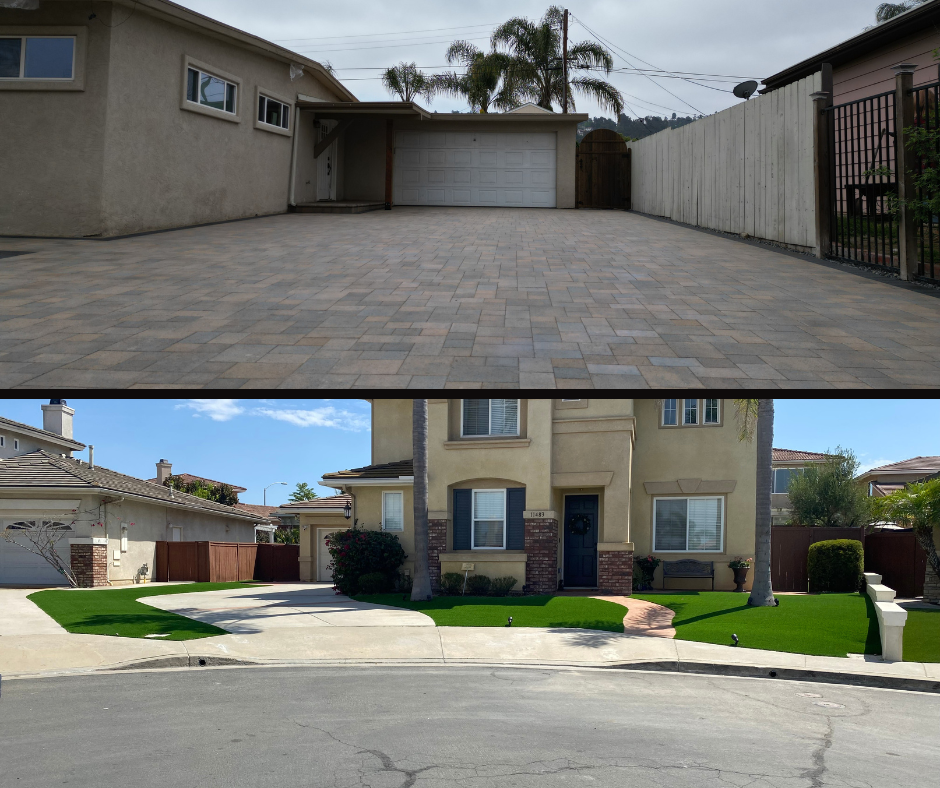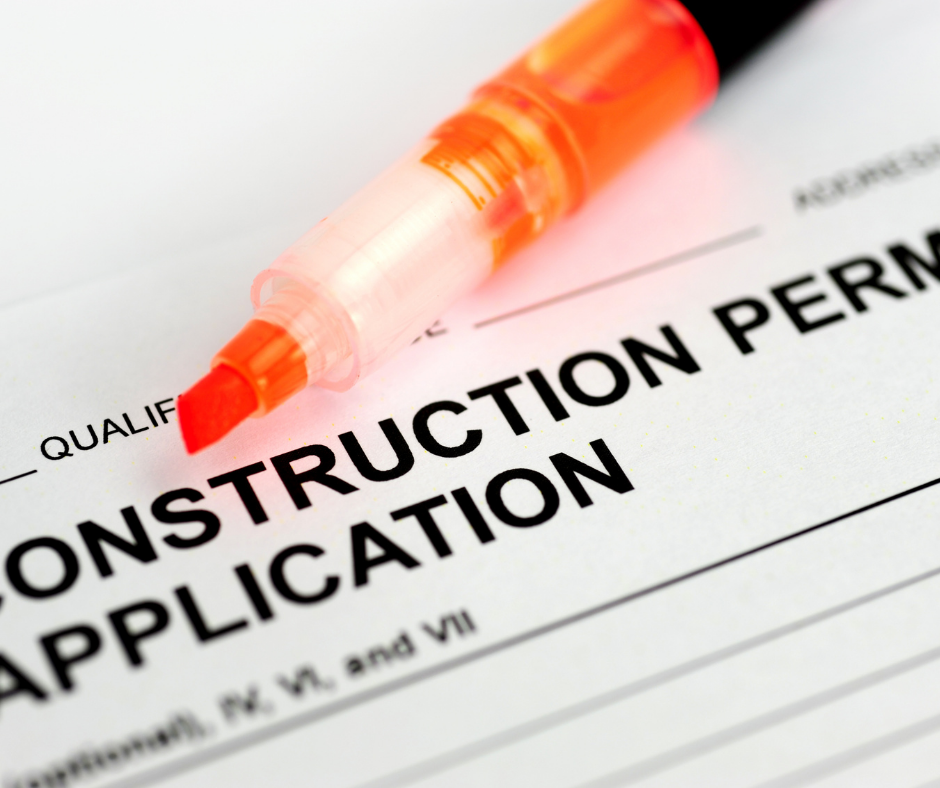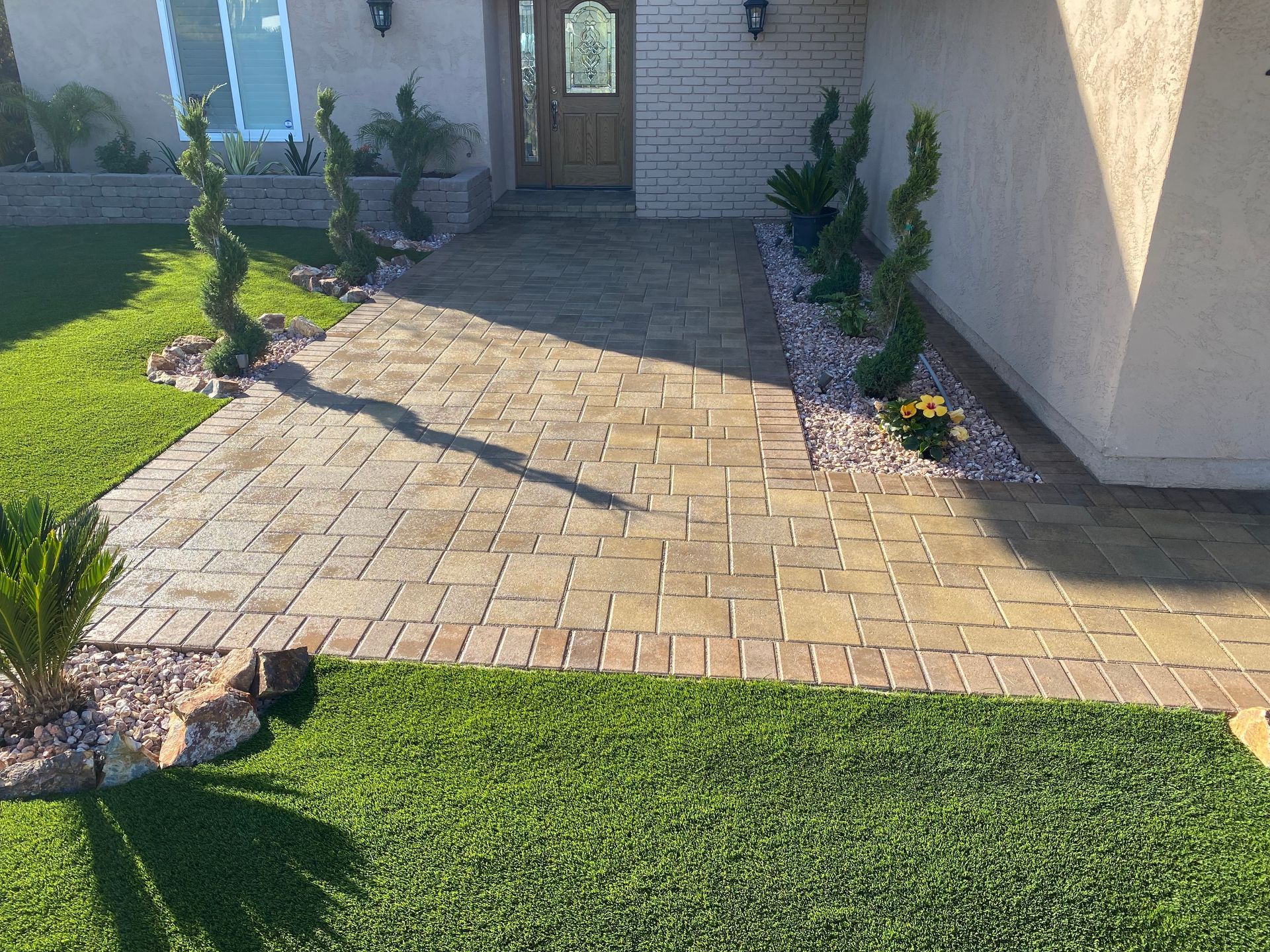How Thick Should Driveway Pavers Be? San Diego Guide for Durability & Value
When you’re planning a driveway in San Diego, one question comes up again and again: how thick are brick pavers, and what thickness do you need so they last, look great, and handle weight without cracking? If you've got a compact car, a truck, or plan to park an RV, knowing the correct driveway paver thickness and paver base depth is essential to avoid future hassle.
Why Paver Thickness and Base Matter
It’s not just about the paver itself. Even the thickest paver won’t perform well if the base is weak.
- Proper thickness helps distribute weight so vehicles don’t cause breakage.
- The base supports and stabilizes the pavers. A strong base prevents shifting, sinking, or cracking.
- San Diego’s soils (especially in coastal or clay-heavy areas) can swell/settle, so you need thickness built for those conditions.
Standard Paver Thickness Ranges
Here are common thickness benchmarks you’ll hear contractors mention (converted for clarity):
Light pedestrian paths & patios
Paver Thickness:
~ 2–2⅜ inches (50-60 mm)
Why It's Chosen:
Enough for feet and occasional furniture
Residential driveways
Paver Thickness:
~ 2¾-3⅛ inches (70-80 mm)
Why It's Chosen:
Handles regular car weight and occasional heavier loads
Heavy traffic / large vehicles / steep driveways
Paver Thickness:
3 inches+ or specialty pavers
Why It's Chosen:
Better strength, less flex, more durability
What About Brick / Natural Stone / Clay Pavers?
Not all pavers are the same material:
- Clay pavers often have a somewhat different thickness requirement (often a bit more robust in certain uses) and may crack under weighty loads unless the base is super solid.
- Natural stone pavers vary in thickness wildly depending on type (granite, slate, etc.). Always confirm structural specs and load capacity.
Base Depth: The Foundation of Longevity
You can have thick pavers, but if the base beneath isn’t right, you’ll still get problems. Here’s what’s recommended:
- Residential driveway base:
6-8 inches of crushed aggregate/gravel, properly compacted.
- Patio/walkway or light-use areas: 4-6 inches base works in San Diego’s climate if the soil is stable.
- If soil is clay, has poor drainage, or slope is steep, base depth might need to go higher (add extra inches).
What Thickness Should You Choose in San Diego
Here are recommendations tailored for typical San Diego driveway project types:
- Driveway for standard vehicles (sedan, SUV): Go with
60-mm (≈2⅜") concrete or interlocking pavers + a 6-inch (≈150 mm) base.
- Driveway with occasional heavy loads (delivery trucks, RVs): Use
80-mm (≈3⅛") or more thick pavers
+ 8-inch base if practical.
- Steep driveway or sloped terraces: Use a heavier base, excellent drainage (geotextile if needed), and edge restraints to keep everything stable.
Other Critical Factors That Affect Thickness
Even with proper paver and base thickness, some other things strongly influence how long the driveway lasts:
- Compaction: Base must be compacted well. A loose base is the #1 reason driveways fail.
- Edge restraints: Keep edges from shifting. Without them, pavers spread, crack, or pop up.
- Joint sand/filling: Use proper joint sand or polymeric sand; keep it filled; helps lock pavers in.
- Drainage: Water must flow away from driveway edges; poor drainage erodes the base.
Comparison: Thinner vs Thicker Pavers + Base Costs
Here’s a snapshot of trade-offs:
Thinner pavers (≈50-60 mm) with minimal base
Pros:
Lower material cost, easier to handle/install
Cons:
Less durability under heavy load, more risk of cracks & shifting
Thicker pavers (~80-mm+) with deeper base
Pros:
Stronger, longer life, more resistance to wear and uneven loads
Cons:
Higher upfront cost, heavier to install, may require stronger base tools
Often, a slightly higher cost up front saves money later by avoiding repairs, uneven sections, or replacement.
Final Word: How Thick
You Should Go
If you’ve made it this far, you already know, paver thickness isn’t just a random number; it’s the foundation (literally) of a driveway that lasts. The right thickness keeps your surface smooth, stable, and beautiful for decades, even through San Diego’s unique mix of sunny days, heavy rains, and salty coastal air.
Here’s the quick breakdown:
- Go for 60–80 mm thick
pavers (about 2⅜″ to 3⅛″) that sweet spot gives you long-term strength and a premium look without overkill.
- Pair with a 6–8 inch compacted base. The base does the heavy lifting, so don’t skimp. It keeps pavers from shifting, settling, or cracking.
- Add a 1-inch bedding sand layer + good drainage so water runs off properly, protecting your base from erosion and keeping everything solid.
In short: strong base, right paver, proper prep. That trio makes all the difference between a driveway that lasts 30 years… and one that starts showing dips and cracks in 3.
If you’re investing in your home’s curb appeal, don’t cut corners on the groundwork. San Diego’s soil and weather can be tricky, so choose materials and thickness built to stand up to both time and traffic.
Your driveway isn’t just where you park; it’s the first thing people see when they pull up. A well-built, perfectly leveled paver driveway says “quality” before anyone even rings the doorbell.
Ready to make that happen?
Call our team today for a free, no-obligation estimate. We’ll help you choose the perfect paver thickness and design for your San Diego home. Built to last, and built to impress.
You might also like
Expert Tips for Landscape in San Diego
Get a free quote for your landscape project in San Diego
Fill the form below and get a consultation and estimate for your next landscape project!
